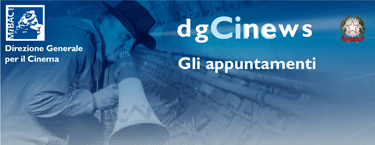A team of seven researchers has developed a software capable of predicting the evolution of common physical events. The final test, the prediction of the exact number of fragments caused by the fall of a glass, was a success. Interested by these results, the mysterious Professor Cornelius invites the working team in his isolated mansion on a deserted island, hiding his true intentions. Escorted by Alfred, a sea man hired by Cornelius, the researchers come to the desolate and solitary island. The only house present is the mansion of the professor, built on the top of a cliff, reachable only by an old elevator. As they enter the house, the eight characters remain baffled: no one welcome them. A quick exploration leads them to find a bizarre model of the mansion. There are eight pawns in that model, moving in perfect sync with the members of the group. The operation of the device, completely mechanical, suggests the crazy hypothesis that who built it was able to foresee any movement of his guests. Cornelius appears in a video message announcing that his experiment has begun. The group decides to leave the mansion, but the elevator is now blocked. As time passes, the team will lead to paradoxical situations in a growing tension that will not only test their nerves but also one of their certainties: the free will.
"Does free will exist? Or is there a predetermined destiny for each one of us? For thousands of years the man has been faced by this question, without finding satisfactory answers. On the issue, about two centuries ago, Pierre Simon Laplace, a French mathematician and philosopher, took an extreme stand: the universe is a huge clock and all entities, including humans, act as cogs. So there isn’t free will. Based on this theory, The Laplace’s Demon is born. It’s a thriller about destiny and free will, simulating a reality ruled by deterministic laws in a simple way, thanks to a story rich of paradoxical situations, in which philosophy isn’t the main theme of the movie, but rather an engine that starts the story and overwhelms the characters. We’ve been two goals since the beginning. The first one was to make a thriller, whose protagonist was a strong, coherent and involving plot. Every part of the movie (photography, acting, editing, special effect, etc.) had to serve the story, not the other way around. The second one was to opt for a very different style in comparison with other movies of this type, in particular for an element: violence. In fact violence (visual, physical, verbal) seems to be a fundamental ingredient for contemporary thriller and horror movies, as if public wasn’t expecting anything else. We believe instead that public can be simply involved with a well-conceived suspense. In order to achieve these ambitious objectives, we looked at great masters of the past, such as Alfred Hitchcock and Val Lewton and also at some unique movies as And Then There Were None by René Clair and The Haunting by Robert Wise. So we followed in the footsteps of that American classic cinema, in which fear didn’t emerge from easy expedients as cruelty of images or a sudden scream or particular special effects, but rather from an exciting plot and especially from sense of tension and suspense, of which it was full. We invested two years for developing an original plot that worked as a clockwork and we took five and a half years so that the script came alive in a movie with a little bit old fashioned look, especially in photography (a black and white with a great contrast) and scenography, for which we used a technique no longer used, that of the rear projected backdrops. For music, totally created with the computer, we carefully selected and used classic instruments, especially avoiding too modern rhythms and sounds. In conclusion, our movie looks really at the past in its style, also using a classic narrative scheme, but developing it in a completely new way." [Giordano Giulivi]
After his education in humanities, his passion for audiovisual techniques led Giordano Giulivi (Rome, 1974) to work as an editor at Italian National Television. Always attracted by the imaginary and the mysterious, interpreted in a philosophical and scientific way, as shown by his passion for astronomy, he found in making movies his mean of expression, conceiving and telling stories that reflect his interests and fantasies. He has therefore dedicated himself to the cinema taking care of all the aspects related to the realization of a film, seen as a unitary and integrated activity, including the creation of the story, writing the script down to the smallest details, directing and final editing. He has devoted time and attention to this passion, with a continuous process of training and learning by doing that has led him to the management of also innovative techniques, applied with accuracy, method and perseverance that ensure the high quality of the product, despite the limited resources available. One example is the scenery of his films, conceived and made by himself, by manually building some elements, and using more and more systematically computer tools, such as Computer Graphics, in a coherent way with the expressive needs of his films. Giordano is an independent director, screenwriter of his films and co-producer of the same.
